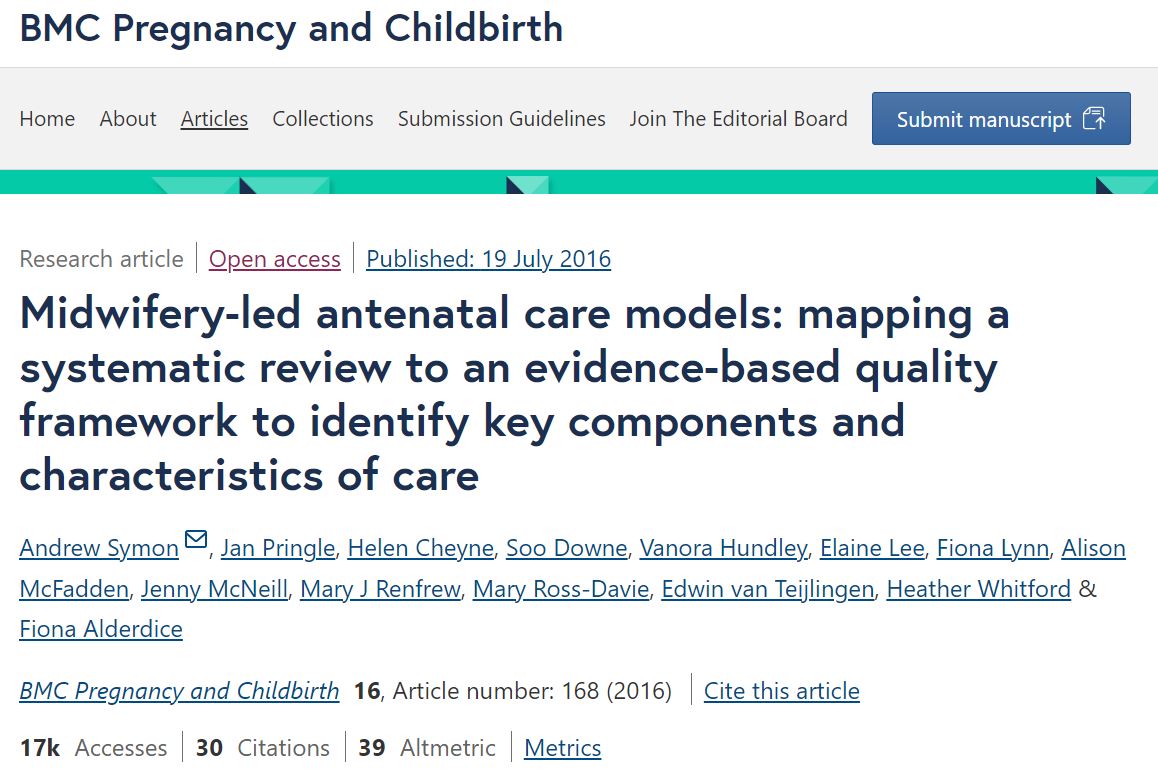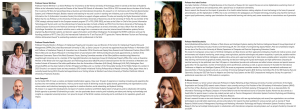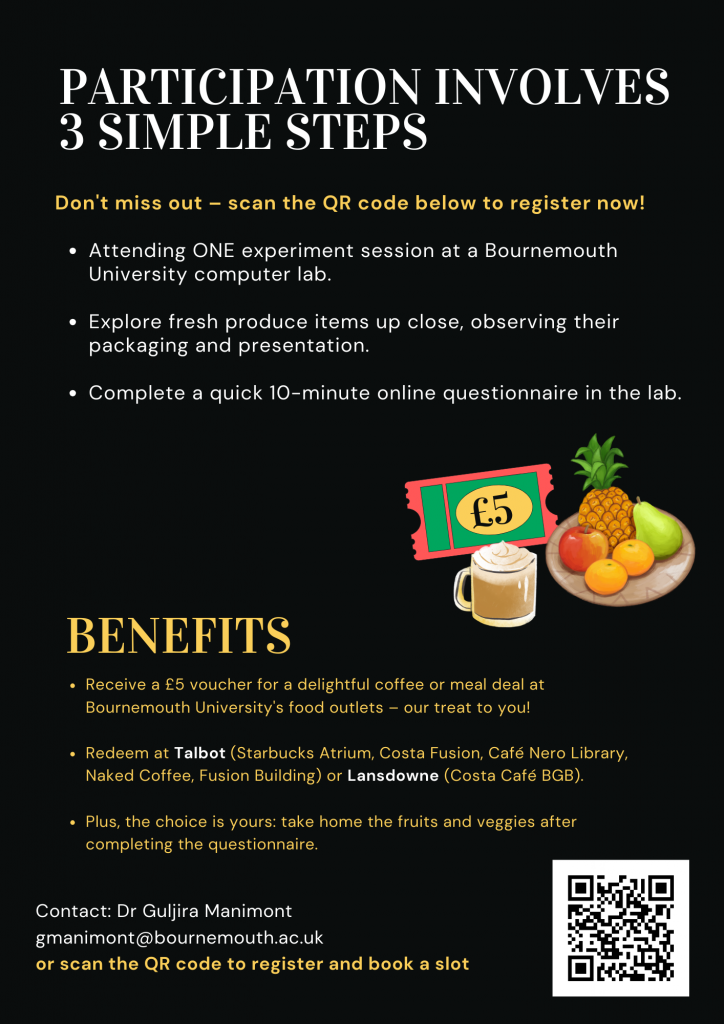/ Full archive
Socio-Ecological Transition Seminars – Spring 2024 events
We are delighted to share the spring 2024 calendar for our Socio-Ecological Transition Seminars (SETS). This seminar cycle’s discussions will revolve around the global crisis of waste and the unsustainability of current modes of production and consumption, analysed across sectors and geographical contexts, in its societal, organisational, political, and ethical dimensions.
We have a confirmed calendar of international distinguished speakers:
April 3rd h 3 pm: A public sociology of waste, Myra Hird
Myra J. Hird, Professor in Environmental Studies at Queen’s University (Canada). Myra holds a PhD from Oxford University and is a distinguished interdisciplinary scholar researching the global waste crisis and will present her recent book A Public Sociology of Waste (2022, Bristol University Press).
April 24th h 3 pm: Recycling Class: The Contradictions of Inclusion in Urban Sustainability, Manisha Anantharaman
Manisha Anantharaman, Assistant Professor of Sociology at the Center for the Sociology of Organisations, Sciences Po Paris (France). Manisha holds a PhD from University of California Berkeley, and her research focuses on the politics of ecological transition and sustainability. Manisha will present her recent book Recycling Class. The Contradictions of Inclusion in Urban Sustainability (2024, MIT press).
29th May h 3 pm: The Social Life of Unsustainable Mass Consumption, Magnus Boström.
Magnus Boström, Professor of Sociology at the Center for Environmental and Sustainability Social Science (CESSS) at Örebro University, Sweden. Magnus’ research interests include politics, representation, consumption, action, and transformative learning in relation to various transnational environmental and sustainability issues. Magnus will present his recent book: The Social Life of Unsustainable Mass Consumption (2023, Rowman & Littlefield)
All seminars are online on Zoom:
https://unitn.zoom.us/j/85334570893Meeting ID: 853 3457 0893
Passcode: SETS
SETS is a joint initiative between the Research Group on Collective Action, Change, and Transition at the University of Trento, the Centre for Sustainable and Socially Responsible Consumption at Bournemouth University, and the Environmental Sociology Section at the University of Orebro. The seminars are open to a diverse audience, including academics, students, practitioners, social movements, and the non-specialist public.
SETS aims at reflecting with critical instruments and theories on socio-ecological transformations in times of crisis – with a special focus on everyday life and the sphere of social and ecological reproduction. In particular, the seminars aim at eliciting reflection on the different practices and “fields” where struggles and transformative action take place. The seminars are open to a diverse audience, including academics, students, practitioners, social movements, and non-specialist public.
Dr Roberta Discetti, SETS co-founder
UK Research Integrity Office – Free Webinar – Social Media and Ethics – Last chance to book
 UKRIO has announced details of a forthcoming Free Webinar “Social Media and Ethics” on Wednesday 21st February from 10:00 – 11:00 BST.
UKRIO has announced details of a forthcoming Free Webinar “Social Media and Ethics” on Wednesday 21st February from 10:00 – 11:00 BST.
Research using social media data presents several ethical issues that researchers must navigate to ensure the responsible and respectful use of this data. Some of the primary ethical issues in research using social media includes privacy and informed consent, anonymity and confidentiality, data ownership and terms of use, ethical use of algorithms and AI, sensitive topics and vulnerable populations, consent and minors, deception and online identity, unintended consequences, and transparency and reproducibility.This webinar discusses these ethical concerns that require a combination of thoughtful consideration, adherence to research guidelines, and engagement with relevant stakeholders, including social media platforms and users.
Dr Nicolas Gold, Associate Professor in Computer Science will lead the webinar, which will cover:
- The identification of some key ethics issues when using social media data.
- An approach to constructing arguments for ethically defensible research in this space.
- A brief “tour” of some platform terms and their potential impact on research.
This webinar is aimed at all researchers using social media and those involved in the ethical review process of projects.
As BU subscribes to UKRIO services, UKRIO webinars are free and open to anyone who may be interested in research integrity and ethics, good research practice and improving research culture and avoiding misconduct.
To register – please click here (takes you to external website).
Spaces available: Evaluation of Engagement workshops delivered by Dr Jamie Gallagher
Evaluation of Engagement
Mon 18 March, 1-4pm, Talbot Campus
Successful public engagement can benefit research, researchers and the public – but how do you go about demonstrating this change? This workshop will guide you through the best evaluation processes, showing you when, why and, crucially, how to use evaluation to provide reliable, clear data. It will highlight how to demonstrate success to funders, record impact for the REF, help improve your processes, and give you a better understanding of the people you are connecting with.
To book a place on this workshop, please complete the booking form under Impact Essentials: Evaluating Public Engagement – 18/03/2024, in the drop down menu
Advanced Evaluation
Tues 19 March, 9am-12pm, Lansdowne Campus
Taking an in-depth look at evaluation, participants will explore data capture, analysis and reporting. From surveys to focus groups, you will learn how to format powerful questions and report meaningful data. Discover how to develop evaluation plans for even the most complex topics. You will also learn how to write evaluation reports for funders or for the REF. This workshop requires good base knowledge of evaluation, ideally from attending the previous Evaluation of Engagement workshop.
To book a place on this workshop, please complete the booking form under Impact Essentials: Advanced Evaluation of Public Engagement – 19/03/2024, in the drop down menu
NB: While we recommend you attend both sessions, you may judge the first session on its own as appropriate for your needs. However, as the advanced session will build on the knowledge and skills gained in the first session, we do advise against only attending the second.
If you have any queries about either session, please contact publicengagement@bournemouth.ac.uk.
Collaborative midwifery paper cited 40 times
 Two days ago ResearchGate informed us that that the paper ‘Midwifery-led antenatal care models: mapping a systematic review to an evidence-based quality framework to identify key components and characteristics of care‘ has reached 40 citations. This paper, co-authored by Bournemouth University’s Professors Vanora Hundley and Edwin van Teijlingen, was originally published in 2016 in BMC Pregnancy & Childbirth [1]. Both Vanora and Edwin are based in the Centre for Midwifery & Women’s Health (CMWH) in the Faculty of Health & Social Sciences.
Two days ago ResearchGate informed us that that the paper ‘Midwifery-led antenatal care models: mapping a systematic review to an evidence-based quality framework to identify key components and characteristics of care‘ has reached 40 citations. This paper, co-authored by Bournemouth University’s Professors Vanora Hundley and Edwin van Teijlingen, was originally published in 2016 in BMC Pregnancy & Childbirth [1]. Both Vanora and Edwin are based in the Centre for Midwifery & Women’s Health (CMWH) in the Faculty of Health & Social Sciences.
The same team wrote a separate paper the following year on ‘Antenatal care trial interventions: a systematic scoping review and taxonomy development of care models’ [2]. Interestingly, ResearchGate tells us this paper has been read fewer times and cited ‘only’ 21 times to date.

Reference:
- Symon, A., Pringle, J, Cheyne, H, Downe, S., Hundley, V, Lee, E, Lynn, F., McFadden, A, McNeill, J., Renfrew, M., Ross-Davie, M., van Teijlingen, E., Whitford, H, Alderdice, F. (2016) Midwifery-led antenatal care models: Mapping a systematic review to evidence-based quality framework to identify key components & characteristics of care, BMC Pregnancy & Childbirth 16:168 http://rdcu.be/uifu
- Symon, A., Pringle, J., Downe, S, Hundley, V., Lee, E., Lynn, F, McFadden, A, McNeill, J, Renfrew, M., Ross-Davie, M., van Teijlingen, E., Whitford, H., Alderdice, F. (2017) Antenatal care trial interventions: a systematic scoping review & taxonomy development of care models BMC Pregnancy & Childbirth 17:8 http://bmcpregnancychildbirth.biomedcentral.com/articles/10.1186/s12884-016-1186-3
Interdisciplinary Research Teams/ Interdisciplinarist
The Interdisciplinary Research Team not the Interdisciplinarist
Worldwide there is a growing interest in multidisciplinary and interdisciplinary research. This overview paper addresses some of the pitfalls and barriers to being an interdisciplinary researcher. Being involved in interdisciplinary research is not an easy option for an individual discipline expert. It requires individual skills, ability to see beyond one’s discipline and perhaps personality characteristics such as a great team player. Interdisciplinary research may involve a mixed-methods approach underpinned by conflicting, and according to some incommensurable, research philosophies. The paper uses some examples from our own experiences of working in interdisciplinary teams to illustrate its potential.
 On Valentine’s Day we received a message from ResearchGate that our paper ‘The Interdisciplinary Research Team not the Interdisciplinarist’ has received 2,000 reads.
On Valentine’s Day we received a message from ResearchGate that our paper ‘The Interdisciplinary Research Team not the Interdisciplinarist’ has received 2,000 reads.
Prof. Edwin van Teijlingen
Reference:
Shanker S, Wasti SP, Ireland J, Regmi PR, Simkhada PP, van Teijlingen E. (2021) The Interdisciplinary Research Team not the Interdisciplinarist. Europasian J Med Sci.;3(2):111-5. Available from: https://www.europasianjournals.org/ejms/index.php/ejms/article/view/317
How does sustainable travel impact economic development?
A panel discussion at the Royal Geographical Society on 20th February will debate sustainable travel’s ability to impact economic development. The event at RGS’s headquarters in London (and also live streamed) will focus on tourism in developing countries, their current situation and the role that sustianable travel can have in leading recovery and future economic development. The panel includes Professor Adam Blake from BU’s International Centre for Tourism and Hospitality Research who will talk about his experience in analysing tourism’s impact on development and poverty reduction in developing countries.
https://www.rgs.org/events/upcoming-events/how-does-sustainable-travel-impact-economic-development
KEYNOTES announced for Digital Marketing Colloquium: Exploring Artificial Intelligence, Metaverse and Web3 19-20 March 24
KEYNOTES announced for the BOURNEMOUTH UNIVERSITY
Digital Marketing Colloquium: Exploring Artificial Intelligence, Metaverse and Web3
19-20 March 24 Bournemouth University https://www.bournemouth.ac.uk/about/our-faculties/bournemouth-university-business-school/department-marketing-strategy-innovation/digital-marketing-colloquium-2024
JOIN US – ABSTRACT DEADLINE Extended to the end of February

FHSS PhD Student Hina Tariq featured in the Frontline Magazine of Chartered Society of Physiotherapy
FHSS PhD student Hina Tariq has been featured in the frontline magazine of the Chartered Society of Physiotherapy with her clinical supervisor, Joel Dunn in an article “Addressing the cost of contractures” . The article highlights her PhD research on the development and validation of a contracture risk assessment tool (ORACLE). Joint contracture is a debilitating condition characterised by the shortening and stiffening of muscles, pose significant challenges for individuals’ mobility and quality of life. A valid and reliable contracture risk assessment tool might have the potential to trigger timely and appropriate referrals and may aid in prompt escalation of early interventions by the specialists aiming to reduce the risk of contracture development or progression of existing contractures. The article also highlights her contribution to a contracture awareness video developed as part of a QI-driven project with Dorset Healthcare. The evidence behind the content of the video has been generated by her PhD research. The awareness video is developed for carers to highlight the risks associated with the development of joint contractures and the practical preventative steps. This video was co-created as a collaboration between Dorset HealthCare’s clinical staff, the quality improvement team and with support from staff at Encore Care Homes.
The article also highlights her contribution to a contracture awareness video developed as part of a QI-driven project with Dorset Healthcare. The evidence behind the content of the video has been generated by her PhD research. The awareness video is developed for carers to highlight the risks associated with the development of joint contractures and the practical preventative steps. This video was co-created as a collaboration between Dorset HealthCare’s clinical staff, the quality improvement team and with support from staff at Encore Care Homes.

Calling PGRs – Share your research with the public at Café Scientifique
Are you a Postgraduate Researcher at Bournemouth University? Do you want to share your research with a public audience and improve your communication skills? If so, we have an exciting opportunity for you.
 We are looking for 3-4 post-graduate researchers to take part in a special edition of our Café Scientifique public event series to deliver a short talk about your research to a friendly public audience. The event will take place from 6:30-8:00pm on Tuesday 7 May 2024 at The Black Cherry in Boscombe.
We are looking for 3-4 post-graduate researchers to take part in a special edition of our Café Scientifique public event series to deliver a short talk about your research to a friendly public audience. The event will take place from 6:30-8:00pm on Tuesday 7 May 2024 at The Black Cherry in Boscombe.
Café Scientifique is a fun and informal way to engage the public with your research and get feedback from different perspectives. You will receive training and support from our experienced Café Scientifique organisers in the Public Engagement Team, who will help you prepare and deliver your talk with confidence.
- Please complete a short form to let us know why you are interested in getting involved, and include a bit about your research.
- If selected, we will send you guidance on how to develop and deliver an engaging talk to a public audience. We will ask you to produce and practice a ‘draft’ version of your talk.
- You will be invited to attend a training session on Tuesday 9 April to deliver your talk in front of the organisers and other speakers involved with the event. We will provide you with supportive feedback and ask you to do the same to the other selected speakers.
- The Public Engagement Team will organise the event and promote it to local public audiences. The team will support you every step of the way. From developing your ideas to engage with a public audience, to setting up and promoting your event. We will also be on hand on the day to help your event run smoothly
If you are interested, please complete this form. The deadline for applying is Friday 8 March, 5pm.
Please note: Completing this form does not guarantee you a space. We will be in touch with you to discuss your interest.
If you have any questions about getting involved with Café Sci, please get in touch with the Public Engagement with Research Team: publicengagement@bournemouth.ac.uk.
Reminder: Age Friendly Communities to present at Community Voice Webinar Wed 14th Feb 12-1pm
February’s webinar welcomes Heather Olive the Age Friendly Community Coordinator for Bournemouth, Christchurch and Poole.
In a response to the older population increasing globally The World Health Organisation (WHO) in 2010 created an initiative called ‘Age Friendly Communities.’ The aim is that Age Friendly Communities enable people to continue to stay living in their homes, living the life they want to live for as long as possible. Importantly in these communities, older residents help to shape the place that they live. Locally we have built a network of over 80 organisations working towards this common aim. Nationally we share knowledge and best practice through the support of the Centre for Ageing Better.
Community voices is a collaboration between BU PIER partnership and Centre for Seldom Heard Voices to provide a platform and a voice to local community activists.
Please do join us for this webinar….
Microsoft Teams meeting
Join on your computer, mobile app or room device
Click here to join the meeting
Meeting ID: 397 765 953 34
Passcode: ohbzTW
BU hosting IFIP OCCE 2024 Conference


BU is hosting an international conference, IFIP TC3 Open Conference on Computers in Education titled Digitally Transformed Education: Are We There Yet? This International Federation for Information Processing (IFIP) conference is the 4th after past conferences in Austria, India, Tanzania and Finland. BU is honoured to follow the great steps and efforts in defining technology input in education.
The OCCE 2024 will provide a forum for new research results, practical experiences, developments, ideas, and national perspectives, related to the conference focus and themes for all levels of education (preschool, primary, secondary, higher, vocational, and lifelong learning), including the professional development of educators (teachers, trainers and academic and support staff at other educational institutions) and related questions on educational management. The conference will aim to explore the impact of technology across a range of user experiences including those of students, staff and management. This will create an interesting creative tension during the conference.
The conference includes three keynotes from world renowned speakers: Julia Adamson MBE FBCS, Managing Director, Education and Public Benefit at BCS, The Chartered Institute for IT (whose mission at BCS is to give every young person the digital skills they need to succeed in life and work); Professor Deirdre Butler, a Full Professor at the Institute of Education, Dublin City University (DCU) (whose passion in life is exploring what being digital in learning can mean and what skills or competencies are needed to live and thrive in today’s complex globally connected world); and Professor Kai Rannenberg, Chair of Mobile Business & Multilateral Security, Goethe University Frankfurt, Germany (who has coordinated several leading EU research projects, e.g., the Network of Excellence “Future of Identity in the Information Society” and the Integrated Project “Attribute based Credentials for Trust” (ABC4Trust), and is coordinating CyberSec4Europe, a pilot for the European Cybersecurity Competence Network the EU is aiming for).
The conference includes two panel sessions. The first session chaired by Professor Alastair Irons titled the four nations panel includes members Dr. Parveen Samra, Dr. Fiona Mcneil, Professor Tom Crick and Dr. Michael McEnery. The panel focuses on the development of the computing and computing science curriculum in and across colleges and universities as an interesting, challenging and complex issue. It notes the situation in the UK is not uniform, with differences at school, college and university levels across England and the devolved nations (Scotland, Northern Ireland and Wales). It highlights the significant work happening in all four countries in the UK – some in collaboration, for example, degree accreditation, and some devolved, such as the school curriculum.
The second panel session chaired by Dr. Mary Webb is titled Opportunities and challenges for AI in Education: One year after ChatGPT?, and includes members Julia Adamson MBE, Dr. Caitlin Bentley and Professor Angelos Stefanidis. The sudden availability of generative AI to ChatGPT alerted everyone to AI’s rapidly developing capabilities and massive potential. While generative AI, as one type of AI application, can create and edit a range of different media very efficiently, other AI functionalities that are useful to education include: conversational AI, predictive AI, speech recognition, robotics, computer vision, learning and assessment analytics and personalised feedback. But what do all these advances mean for the education sector. The panel will consider this and other themes on this topic.
Other conference activities include 2 symposia, 6 workshops, an invited session and a doctoral consortium. The conference will be held at BU’s Executive Business Centre from 27 February 2024 to 1 March 2024. For more details, please visit the conference website: ww.bournemouth.ac.uk/occe-2024
The conference is being organised by International Programme Committee members:
• Christophe Reffay, IPC Chair, University of Franche-Comté, France
• Margaret Leahy, Editor, Dublin City University, Ireland
• Don Passey, IFIP TC3 Chair, Lancaster University, UK
• Mikko Ruohonen,Tampere University, Finland
• Javier Osorio Acosta, The University of Las Palmas de Gran Canaria, Spain
• Ivan Kalaš, Comenius University in Bratislava, Slovakia
And local Organisation Committee members from BU:
• Nan Jiang, Honorary Chair
• Melanie Coles, Honorary Chair
• Huseyin Dogan, Honorary Chair
• Nicholas Mavengere, Chair
• Lai Xu, Business partnership
• Paul De Vrieze, Finance Chair
• Deniz Cetinkaya, Student volunteers and internal promotion
• Wei Koong Chai, Publicity Chair
• Gernot Liebchen, Volunteers and internal promotion
• Avleen Malhi, Social events
• Mohammad Naiseh, Social events
• Marcin Budka, Digital Chair
Dr. Nicholas Blessing Mavengere
Local organising chair, nmavengere@bournemouth.ac.uk
We still need ‘YOU’ – Call for research participants – be part of our food waste revolution
Remember the British Academy/Leverhulme Small Research Grant that we recently secured in September 2023? It is turning into a super cool project, and we want YOU in on the fun!
Calling all UK residents aged 18 and above to jump into the action
by participating in our consumer product evaluation research study
Visit a link and book a slot today
What’s the scoop for you? A £5 voucher, just for spending a quick 10 minutes on a fun online survey in our lab. And here’s the best part – you can cash in that voucher at BU’s food spots on both the Talbot and Lansdowne campuses.
Hold up, there’s more! After the 10-minute experiment session, you get to snag some free fruits and veggies to take home. It’s like a mini grocery haul, just for being a research rockstar!
Participation is a simple three-step process:
- Attend ONE experiment session at a Bournemouth University lab. Our lab is situated in the Fusion Building on the Talbot Campus. On Wednesdays, the lab is located at FG07, while on Thursdays, it relocates to F204. The lab opens from 1 pm to 3 pm, with the last session starting at 2:45 pm.
- Explore fresh produce items up close, observing their presentation.
- Complete a quick 10-minute online questionnaire in the lab.
Your contribution is a game-changer for us, and we can’t wait to see the impact we make together. This isn’t just research; it’s your chance to be a superhero in the battle against food waste. Your opportunity to contribute is now, and we can’t wait to have you on board!
Interested in being a research participant?
Simply scan the QR code to register or visit a link and book a slot or drop our research team to express your interest: Dr Guljira Manimont gmanimont@bournemouth.ac.uk or Professor Juliet Memery jmemery@bournemouth.ac.uk.
Café Scientifique Tuesday 5 March 2024 – From ‘student’ to ‘lifesaver’: how understanding identity can help new paramedics
At Café Scientifique, you can explore the latest ideas in science and technology in a relaxed setting. Enjoy listening to a short talk before engaging in debate and discussion with our guest speaker and audience
 We’ll be joined by Peter Phillips on Tuesday 5 March from 6:30 – 8:00pm.
We’ll be joined by Peter Phillips on Tuesday 5 March from 6:30 – 8:00pm.
Paramedics have the worst wellbeing of all healthcare professionals, and the newly-qualified are particularly vulnerable. But it is not necessarily for the obvious reasons of dealing with traumatic events.
Join Bournemouth University’s Peter Phillips, a senior lecturer in paramedic science, to hear how his research about identity among newly qualified paramedics could help make them more resilient.
This event will be held at The Black Cherry in Boscombe, Bournemouth. Although the talks start at 6:30pm, the café will be open early so we encourage you to arrive early for a drink and a bite to eat before the talk starts.
If you have any questions about this event please email the Public Engagement with Research Team: publicengagement@bournemouth.ac.uk
Get involved with Café Sci in May
Are you a Postgraduate Researcher at Bournemouth University? Do you want to share your research with a public audience and improve your communication skills? If so, we have an exciting opportunity for you.
We are looking for 3-4 postgraduate researchers to take part in a special edition of our Café Scientifique public event series to deliver a short talk about your research to a friendly public audience. The event will take place from 6:30-8:00pm on Tuesday 7 May 2024 at The Black Cherry in Boscombe. Find out more and apply here
BA/Leverhulme Small Research Grants
 The call for the next round of BA/Leverhulme Small Research Grants will be opening soon, expected 10th April.
The call for the next round of BA/Leverhulme Small Research Grants will be opening soon, expected 10th April.
We are welcoming your proposals for the upcoming BA/Leverhulme Small grants call.
To ensure that the pre-award team can provide all interested academics with optimal support we are inviting you to participate to RDS British Academy Guidance session
Wed 28th Feb 2024, 10:00-12:00 at Talbot campus
- Join us to review the guidance and then start work on your application
- Slides will be available after the session on Brightspace.
Work on your proposals, submit your ITB as soon as you are ready and work with your allocated officer on your budget. The earlier you send in your ITB, the sooner you can progress with your budget support.
To book onto this session, please complete the Booking Form under “British Academy Small Grants Guidance session – 28/02/2024” in the drop down menu.
Please find details on the process to be followed and deadlines here.
If you have any queries, please contact Eva Papadopoulou epapadopoulou@bournemouth.ac.uk or your Funding Development Officer.
New BU Public Health publication
Yesterday we received the proofs of the recently accepted paper ‘Improved Water, Sanitation and Hygiene Facilities at School and their Effect on Educational Achievement in Basic Level Students in Nepal’ [1]. Luckily these are only the proof pages as my family name is misspelt, and the paper still lists the old name of our Centre for Midwifery and Women’s Health, which was, of course, the correct name at the time of submission.
The last time I published a paper on hygiene was also with colleagues in Nepal seven years ago, this time it was on menstrual hygiene [2].
Prof. Edwin van Teijlingen
Centre for Midwifery & Women’s Health 
References:
- Sharma, M., Adhikari, R., van Teijlingen, E., Devkota, B., Khanal, S. (2024) Improved Water, Sanitation and Hygiene Facilities at School and their Effect on Educational Achievement in Basic Level Students in Nepal, International Journal of Health Promotion & Education (accepted). https://doi.org/10.1080/14635240.2024.2314459.
- Budhathoki, S.S., Bhattachan, M., Pokharel, P.K., Bhadra, M., van Teijlingen, E. (2017) Reusable sanitary towels: Promoting menstrual hygiene in post-earthquake Nepal. Journal of Family Planning & Reproductive Health Care 43(2): 157-159.
RKEDF Evaluation of Engagement workshops coming up in March: book now

Evaluation of Engagement
Mon 18 March, 1-4pm, Talbot Campus
Advanced Evaluation
Tues 19 March, 9am-12pm, Lansdowne Campus
Sign up for a place on these workshops, delivered by Dr Jamie Gallagher, one of the most experienced public engagement trainers in the UK. Jamie has previously provided training sessions for BU researchers in evaluation and communication, which have been extremely well-received by attendees:
‘Informative and highly relevant to research practice’
‘Insightful and useful session’
‘Benefitted from meeting and learning from other people’s experiences. Glad to have the opportunity to do this’.
Evaluation of Engagement
This workshop will highlight what you need to ask yourself, and the public, to ensure you can demonstrate the success of your intervention and capture the long term impact of it.
Successful public engagement can benefit research, researchers and the public – but how do you go about demonstrating this change? This workshop will guide you through the best evaluation processes, showing you when, why and, crucially, how to use evaluation to provide reliable, clear data. It will highlight how to demonstrate success to funders, record impact for the REF, help improve your processes, and give you a better understanding of the people you are connecting with.
To book a place on this workshop, please complete the booking form.
Advanced Evaluation
Taking an in-depth look at evaluation, participants will explore data capture, analysis and reporting. From surveys to focus groups, you will learn how to format powerful questions and report meaningful data. Discover how to develop evaluation plans for even the most complex topics. You will also learn how to write evaluation reports for funders or for the REF. This workshop requires good base knowledge of evaluation, ideally from attending the previous Evaluation of Engagement workshop.
To book a place on this workshop please complete the booking form.
NB: While we recommend you attend both sessions, you may judge the first session on its own as appropriate for your needs. However, as the advanced session will build on the knowledge and skills gained in the first session, we do advise against only attending the second.
If you have any queries about either session, please contact publicengagement@bournemouth.ac.uk.
Research process seminar: “When you’re stuck, just narrate”: 10 + 1 tips on how to boost your productivity. 13th Feb at 3pm on Zoom
You are warmly welcomed to our next research process seminar.
“When you’re stuck, just narrate”: 10 + 1 tips on how to boost your productivity
Description
After years of trial and error, Roman will share some thoughts and tips on how to boost your productivity, focusing on the main challenges of staying focused and motivated. He will demonstrate some of the tools and routines he uses to organise tasks, readings, notes and writing, as well as a few mental strategies on overcoming sticking points. He will also demonstrate the ‘typing pool’ method of kickstarting your writing and overcoming ‘writer’s block’. Please feel free to bring a piece of writing that you’re currently working on or need to get started/done. The aim is to leave the session with a toolkit of practical techniques that can help boost your productivity, confidence and self-esteem. Everyone is welcome but this session may be particularly appropriate for Early Career Researchers (ECRs), Postgraduate Research Students (PGRs) and staff who are juggling fragmented diaries/workloads.
Roman Gerodimos is Professor of Global Current Affairs at Bournemouth University and a faculty member at the Salzburg Academy on Media and Global Change. His research, writing, filmmaking and outreach/impact work focus on the challenges facing democracy due to globalization, digitization and extremism, the ways 21st century citizens engage with the world around them, the psychological drivers of violence, threats to global security, and the role of urban public space, art, media literacy and shame awareness in bridging divides. His latest book is Interdisciplinary Applications of Shame/Violence Theory: Breaking the Cycle (Palgrave Macmillan 2022) and he recently completed his fifth short film (Fellows Hall). https://staffprofiles.bournemouth.ac.uk/display/rgerodimos
About the research process seminar series:
The purpose of this research seminar series is different to your typical research seminar and conference presentation. Instead of presenting the results and outcomes of research, we want to share good practices around the process of doing research. This might often involve a focus on research methods but it also includes aspects of publishing, writing, time management, career management etc.
The idea here is that the speaker takes us through the anatomy of the project or approach focussing particularly on the process – the challenges, the successes, and the failures. For the audience, we walk away with a practical application of a method or approach we may not be familiar with or may not have applied in this way before. Our ambition is to make us all better researchers as a result.
All welcome
13 Feb at 3pm on Zoom
https://bournemouth-ac-uk.zoom.us/j/87405070443?pwd=NzJlUk4xWGZDZ0R4blQ4VEhqVTA0QT09
Meeting ID: 874 0507 0443
Passcode: p?6MPyDd
You can also register for the event here: https://bournemouth-ac-uk.zoom.us/meeting/register/tZMpd-yoqTsuHtcYQHIoQWkRTHCCO01Wo_mq















 From Sustainable Research to Sustainable Research Lives: Reflections from the SPROUT Network Event
From Sustainable Research to Sustainable Research Lives: Reflections from the SPROUT Network Event REF Code of Practice consultation is open!
REF Code of Practice consultation is open! BU Leads AI-Driven Work Package in EU Horizon SUSHEAS Project
BU Leads AI-Driven Work Package in EU Horizon SUSHEAS Project ECR Funding Open Call: Research Culture & Community Grant – Apply now
ECR Funding Open Call: Research Culture & Community Grant – Apply now ECR Funding Open Call: Research Culture & Community Grant – Application Deadline Friday 12 December
ECR Funding Open Call: Research Culture & Community Grant – Application Deadline Friday 12 December MSCA Postdoctoral Fellowships 2025 Call
MSCA Postdoctoral Fellowships 2025 Call ERC Advanced Grant 2025 Webinar
ERC Advanced Grant 2025 Webinar Update on UKRO services
Update on UKRO services European research project exploring use of ‘virtual twins’ to better manage metabolic associated fatty liver disease
European research project exploring use of ‘virtual twins’ to better manage metabolic associated fatty liver disease